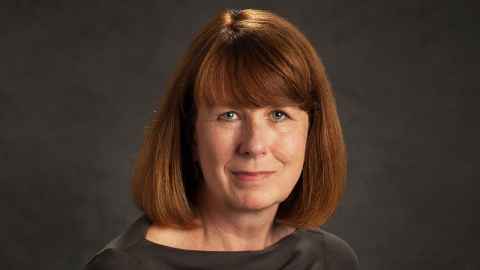Kaupapa Māori project to increase rights of children in state care
20 September 2019
A major project to improve Māori children, whānau and iwi participation in child protection planning and decision-making has received close to $1 million in funding.

The collaborative three-year project to co-design and test a Kaupapa Māori protocol for enhancing meaningful participation by Māori children, whānau and iwi in child protection decision-making and services is being led by Professor Susan Kemp at the
University of Auckland.
Based at the Faculty of Education and Social Work, she will be working in partnership with VOYCE-Whakarongo Mai and the Voices for Children and Youth team at Oranga Tamariki-Ministry for Children.
Professor Kemp is “absolutely delighted” the research had been given the go ahead at such a critical time for New Zealand’s child protection system. “I see this investment as a testament to the importance of this work, and to the commitments and partnerships that are central to the research design, its aims, and the project going forward.”
The research will be funded by a ‘Smart Ideas’ grant as part of the 2019 Ministry of Business, Innovation and Employment (MBIE) Endeavour Fund.
The United Nations Convention on the Rights of the Child requires signatory states like New Zealand to ensure the right of all children and young people to meaningful participation in decisions affecting their lives and wellbeing. However, achieving this is particularly difficult for children involved with statutory child protection services, says Professor Kemp.
“Indeed care-involved children and their families report having little meaningful involvement in key life-changing decisions,” she says. “In New Zealand, this lack of full participation is of particular concern with Māori children and families. In the 12 months to 31 December 2018, 65,000 New Zealand children were reported for child maltreatment, of which 34,000 were referred for investigation.”
The project will also contribute knowledge to international efforts to improve services to Indigenous children and families involved with child protection services.
She says almost half of these children were Māori and further into the system, 68 percent of New Zealand children and young people currently in statutory care are tamariki and rangatahi Māori.
“These children and families face distinctive challenges to full participation in care planning and decision-making, including inter-generational histories of colonisation and understandable cultural mistrust of the statutory child protection system.
“To address these challenges, our research team will partner with care-involved children and young people, whānau, and iwi, and with VOYCE and Oranga Tamariki staff, to co-design a culturally validated protocol for participatory child protection practice."
The research will also involve co-designing training materials to strengthen the capacity of the child protection workforce for effective, culturally responsive practice with Māori children and their families.
Professor Kemp believes implementation and use of Kaupapa Māori practices in child protection planning and decision-making will increase the likelihood that these services are responsive to Māori perspectives and priorities and, importantly, relevant to children and families’ perceived needs.
She anticipates that in turn, active involvement will lead to increased engagement in key services, and in the longer term, to more positive outcomes for Māori children and families involved with the child protection system.
The project will also contribute knowledge to international efforts to improve services to Indigenous children and families involved with child protection.
Members of the research team include: Professor Christa Fouché, University of Auckland, Dr Shayne Walker, University of Otago (Kāi Tahu, Kāti Māmoe, Waitaha, Ngāti Kahungunu), and Dr Paula King, public health physician (Ngāpuhi, Ngāti Whātua, Te Rarawa, Waikato-Tainui, Ngāti Maniapoto).
Media contact
Julianne Evans | Media adviser
Mob: 027 562 5868
Email: julianne.evans@auckland.ac.nz